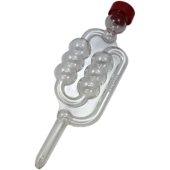Hello I only just finally got land I can grow on, a miniscule lot in a trailer park. I've only been here for less than two months and moving expenses kept the garden budget small, but I'm getting there. I've wanted a worm bin since I was a teenager, took me 20 years but finally have one.
Anyway, we don't have a lawnmower yet but the longest weeds I can chop and use as mulch this weekend. Soon though I will have one of those rotating black plastic
compost bins (have fibromyalgia, need minimal back work). My lawn is so small that I'm thinking it will take a long time to meet my compost needs, I might raid the feilds nearby.
Which brings me to chiggers. We have them and I'm hoping when we get a lawn mower if I keep the grass short and don't water it (possibly not next year either) this will help the problem. I plan on building up compost to mix with purchased soil and slowly (a few square feet at a time and after the chiggers are gone) putting down cardboard and topping with soil then seeding with sprouting clover and alfalfa to turn the lawn into a food crop (throwing in some dandelion, borage, and comfrey as well for the compost and more yard treats). So I don't care about not watering and killing this grass.
What I do care about is bringing more chiggers in with my foraged composting material. I also wondered about if a disease strikes my garden, I read it might be best to remove and replace mulch and don't compost it.
So do the black turnable bins get hot enough to kill pathogens and chiggers? It seems they would get hotter than an open pile. Or is it that they have airflow that allows too much heat to escape? What if I bagged the suspect material in a black plastic bag tied shut and set it in the sun for a week? I could reuse bags to cut down on plastic use.
Edit to add - oh yes, do those black bins smell enough that I will need a strategy to appease neighbors on very close tiny lots of their own?





